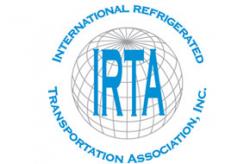Government Connection
Any statute in a storm appears to be the Biden administration’s approach to imposing a vaccine mandate. The Procurement Act of 1949 was created “to provide the Federal Government with an economical and efficient system for” procurement. Like the OSHA statute that the U.S. Supreme Court just held does not authorize a nationwide vaccine-or-test mandate, it says nothing about controlling Americans’ health-care decisions. The Biden administration is nonetheless trying to use the Procurement Act to force all employees of federal contractors, approximately one-fifth of the U.S. labor force, to receive a Covid-19 vaccine or be fired. After repeatedly claiming he would not impose any vaccine mandates, the president announced in September that his “patience [with the unvaccinated] was wearing thin,” and that his administration would rely primarily on employment, not public health, regulations to get Americans vaccinated. In addition to requiring federal employees to vaccinate, the administration issued three rules supposedly based on preexisting federal statutes to mandate vaccines for most American workers. The first is the contractor mandate discussed above. Second, through OSHA, private companies that employ 100 or more people were to implement vaccine mandates or testing alternatives. Third, workers at health-care facilities that receive federal funds through Centers for Medicare and Medicaid Services (CMS) must get the vaccine. On Jan. 13, the Supreme Court issued a stay of the OSHA mandate, finding that the Occupational Safety and Health Act only “empowers [OSHA] to set workplace safety standards, not broad public health measures” “untethered, in any causal sense, from the workplace.” Otherwise, OSHA would have limitless power over the personal health decisions of any American who works for a private company, an interpretation of the statute that cannot be squared with the Constitution’s constraints on executive power. At the same time, the court ruled in favor of the Centers for Medicare & Medicaid Services mandate, in part, because the authorizing Medicare and Medicaid statutes concerned the provision of health care and the mandate’s reach is limited to health-care facilities where “workers [can] contract the virus and transmit it to their patients.” There is a clear limiting principle based on the nature of the workplace in question. Though the federal contractor mandate has been temporarily enjoined nationwide by a district court in Georgia, many contractors and their employees remain in limbo, not knowing if and when the mandate might be put back in force. Some contractors have begun to fire noncompliant employees using the mandate’s deadline, while others are getting ready to do so in anticipation of the temporary injunction being reversed or narrowed.




Add new comment